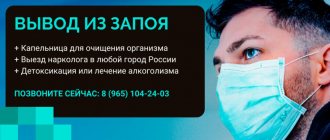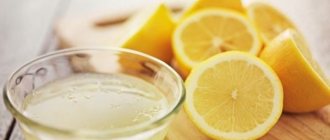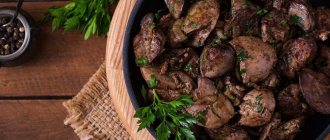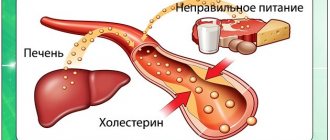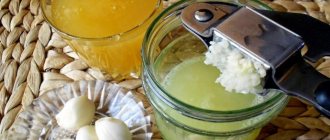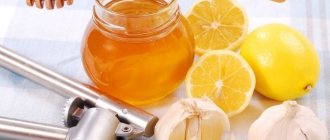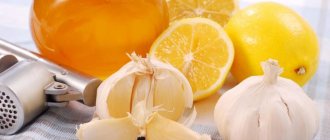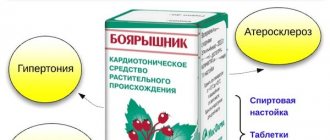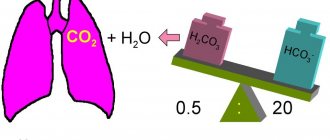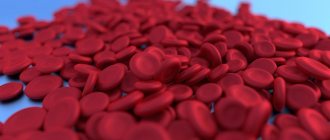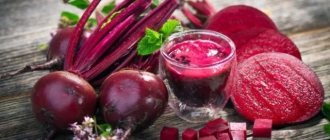Advertising:
Unfortunately, our life is quite short - on average about 70-80 years. To reach this age and live even longer, we must keep our body healthy and prevent dangerous diseases.
One of the most dangerous are diseases of the cardiovascular system, and to maintain it normally there is a proven, safe and effective way - to include in the diet the most beneficial vegetable for the heart, blood and blood vessels - beets.
Beets are a must for people over 40
Beets are a powerful plant source of iron, which is why it is believed to help people suffering from anemia. Beets can be added to the diet for iron deficiency, which is important for the production of hemoglobin, which is responsible for carrying nutrients and oxygen to all parts of the body.
Beets contain many vitamins including vitamin A, E, C and minerals such as sodium, calcium, potassium, riboflavin, thiamine, niacin, fiber and protein.
According to research, beets contain betacyanin, which may slow down the growth of tumors. In addition to this, beets contain flavonoids and dietary fiber, reducing bad cholesterol.
This is why experts recommend consuming beets daily to avoid cholesterol buildup in your arteries. The vegetable is also effective in reducing high blood pressure due to its compounds that help dilate and relax blood vessels.
Beets contain inorganic nitrate . It can also be found among other leafy vegetables such as lettuce and cabbage. Once it enters the body, it becomes nitric oxide , which has the ability to relax and dilate blood vessels .
The circulatory system works continuously, delivering “nutrition” to every cell of our body, saturating it with oxygen. For this reason, the heart and blood vessels are subject to great stress. It is believed that taking only about 500 grams of beets per day can lower blood pressure and strengthen the cardiovascular system.
Daily consumption of beets in the form of juice prevents age-related changes in blood vessels, normalizes blood composition, and strengthens the heart muscle.
Drinking beet juice is beneficial:
- with anemia;
- hypertension;
- disorders of the liver and pancreas;
- gastrointestinal problems;
- oncological diseases.
Is it possible to improve your health with this vegetable?
Can. It’s not for nothing that this dietary root vegetable has been eaten for four thousand years. Even ancient healers called beet juice the juice of life for its wonderful properties.
Beets are a healthy vegetable for the body. It contains a large amount of dietary fiber and has a positive effect on the blood, intestines and liver (you can find out how to treat the liver with beet juice here).
Benefits for blood vessels
Cleaning blood vessels using beets is a good method for preventing atherosclerosis, coronary heart disease, and cerebral stroke.
- Pectin substances and vitamin complexes found in beets cleanse the arteries of cholesterol plaques, strengthen and increase the elasticity of the walls of blood vessels, and improve hematopoietic processes.
- Magnesium in beets lowers blood pressure and is used in the treatment of atherosclerosis, heart diseases, and nervous system diseases.
- Betaine, also present in beets, normalizes blood pressure and fat metabolism, and even has antitumor properties.
- Vitamins and iron have a beneficial effect on blood composition.
Reference. Boiled beets retain their beneficial qualities and have powerful cleansing properties. And therefore, everyone’s favorite red borscht with beets eliminates blockages in blood vessels and removes toxic substances.
We talked in detail about the medicinal properties of beets here, and from this article you will learn about the chemical composition of the red root vegetable, as well as how it is beneficial and harmful to human health.
Benefits for the intestines
Regular consumption of dishes that include beets cleanses the gastrointestinal tract, improves peristalsis and digestive processes, and stimulates metabolism:
- Fiber, found in large quantities in beets, eliminates chronic constipation and removes pathogenic bacteria from the intestines.
- The pectin contained in beets fights putrefactive bacteria that attack the intestines and helps remove harmful substances from the body.
- Beets also contain organic acids necessary to stimulate gastric secretion and intestinal motility.
However, it is worth noting that this vegetable is not suitable for everyone.
Beets are not recommended for:
- Chronic renal failure.
- Diabetes type I and II, as it contains large amounts of sugar.
- Acute inflammatory ailments in the gastrointestinal tract. Beets have a mild laxative effect.
- For exacerbations of gastritis and ulcers of the stomach and duodenum.
- Urolithiasis, kidney pathologies during exacerbation. Oxalic acid binds calcium, which leads to its sedimentation in the kidneys (we talked about whether beets can be consumed if you have cholelithiasis in a separate article).
Important! If you have the above diseases, consult your doctor before starting cleansing procedures.
Remember that during cleansing activities you should not eat fatty, fried foods, or sweets. And although it is not suitable for everyone, beets are truly an excellent helper in cleansing the body as a whole, blood vessels and intestines.
Let's take a closer look at how to apply it in this or that case.
How to deal with the consequences of food poisoning
metaprebiotics
diarrhea
digestive problems
microflora
microbiota
Food poisoning (intoxication) is a severe functional disorder of the gastrointestinal tract, which is provoked by pathogens and their metabolic products (toxins), as well as factors not related to pathogenic microflora. Food poisoning caused by consumption of low-quality and thermally unprocessed food of animal and plant origin is more common among the population. Not only any type of poisoning in the midst of an illness is dangerous, but also the consequences that a person faces after recovery.
Symptoms of food poisoning
The pathogenic microorganisms themselves, their metabolic products or other toxic substances, aggressively affect the gastrointestinal tract along its entire length. Food poisoning is accompanied by dehydration (dehydration), damage to the mucous membrane of the stomach and intestines, and an imbalance of intestinal microflora.
The following are common symptoms of food poisoning:
- nausea and vomiting;
- stool disorders in the form of diarrhea (the frequency of the urge to defecate and the consistency of stool depends on the severity of poisoning);
- pain in the umbilical, left or right iliac region;
- bitter taste in the mouth;
- muscle weakness;
- general malaise;
- pale skin;
- headache;
- increased body temperature;
- dyspnea;
- drowsiness.
Toxins released by pathogenic microorganisms negatively affect the thermoregulation center located in the hypothalamus. The result of this influence is chills and fever. Diarrhea due to food poisoning is profuse in nature. Diarrhea and vomiting lead to significant loss of body fluids and the development of dehydration. Dehydration or dehydration is accompanied by increased heart rate and increased blood pressure.
The first symptoms of intoxication become apparent within 24 hours from the moment pathogens and other toxic compounds enter the body. Depending on the severity of poisoning, body temperature can range from 37.3-40 degrees.
Classification of food poisoning
Foodborne illnesses are divided into 2 main groups:
- Microbial origin. Food intoxication of microbial origin develops when microorganisms of a bacterial or fungal nature enter the body with food. Poisoning can be caused by enterococci, staphylococci, botulinum bacillus, bicilli, vibrios, E. coli, aspergillus, microscopic fungi, and penicillium.
- Non-microbial origin. This type of toxic infection is triggered by natural poisons of both plant and animal origin. Such components are found in the core of apricot kernels, poisonous wild berries and mushrooms, some weeds, sprouted potatoes, burbot caviar, and mussels.
Also, food poisoning can develop when salts of heavy metals, pesticides, nitrosamines and cyclic hydrocarbons enter the body.
First aid for food poisoning
If symptoms of food poisoning occur, you must follow the following algorithm:
- A person should be given 3-5 glasses of clean water to drink, and then induce a gag reflex by pressing two fingers on the root of the tongue. The procedure should be repeated until the water coming out is clean.
- After cleansing the stomach, it is necessary to give the victim an enterosorbent 4 times in a row with an interval of 15 minutes.
- The patient should be wrapped up and ensure complete rest. In the first 24 hours, the victim must refrain from eating food.
Nutrition after poisoning
In order not to worsen your general condition, it is important to know what you can eat after poisoning and what it is better to avoid. It is recommended to start eating on the second day after poisoning. You should start with weak chicken broth, moving on to pureed rice soups. The diet includes weak black tea without sugar, day-old white bread, crackers and crackers, baked apples without sugar, semolina, oatmeal, buckwheat porridge with water, lean fish, steamed or boiled.
Exclude semi-finished products, fried and fatty foods, fatty meats and fish, fresh vegetables and fruits, confectionery, baked goods, sauces, seasonings, spices, and fast food from the diet. The food consumed should not create additional stress on the digestive system and should not provoke diarrhea or irritation of the gastrointestinal mucosa. After suffering a food poisoning, it is very important to take care of restoring the intestinal microflora, since in 75% of cases, intestinal dysbiosis develops after poisoning.
It will take a lot of time for the body to restore normal microflora on its own, and it will not be able to do this fully. The question arises of how to restore the intestinal microflora by resorting to outside help. Metaprebiotics are a real first aid for an organism weakened by food poisoning and its consequences.
Stimbifide Plus is a fundamentally new product , which contains fructopolysaccharides and fructooligosaccharides, as well as calcium lactate. Together, these components actively restore the balance of intestinal microflora, providing it with a natural nutrient substrate and preventing the proliferation of pathogenic microorganisms.
It has been clinically proven that even the best prebiotic among modern brands does not compete in terms of effectiveness with metaprebiotics. Metaprebiotic Stimbifid Plus not only prevents and treats dysbiosis after food poisoning, but also helps to carefully restore the epithelium of the gastrointestinal tract, which has been damaged by bacterial waste products and other toxic components.
In addition, for severe food poisoning, antibiotics may be prescribed. Stimbifid Plus will help avoid the consequences of antibiotic therapy. It is necessary to start taking the metaprebiotic as early as possible, and continue to take Stimbifide Plus for 1.5-2 weeks after the general condition has normalized.
14.09.2020
59868
21
/ Doctor Stimbifeed
If the article was useful to you, share it with your friends:
Cleaning vessels at home
To gently cleanse blood vessels and remove cholesterol, beet infusions and beet juice are used.
Infusion
For infusion you need:
- 1 kg of red beets;
- 3 boiled water;
- 2 bunches of nettles (or 2 leaves of young horseradish).
Finely chop 1 kg of beets, fill with boiled water, and put nettles on top. We change the bunches every day to prevent fermentation. We drink during the day and in the evening. The course of treatment is 30 days.
Juice
There are two ways to prepare beet juice.
- Pass the vegetable through a juicer.
- Squeeze through cheesecloth. In this case, before squeezing, grate the peeled vegetable on a fine grater.
It is safe to drink up to 100 ml of juice. If you drink more, dizziness, nausea and diarrhea are possible. The course of cleansing blood vessels lasts 2-3 weeks.
Note! If unpleasant symptoms appear or your health worsens, stop cleaning immediately and consult a doctor to find out the reasons and prescribe treatment.
Salad with radish and carrots
In order to prepare such a salad, you just need to finely chop or grate raw beets, radishes and carrots, put them in any container and mix.
It is best to season the salad with olive oil; unrefined sunflower oil is also suitable. But not mayonnaise. There is no specific time limit for eating salad.
Drink with added cranberries
Boiled water – 150 g.- Beetroot – 40 g.
- Cranberry 20 g.
- Sugar -10 g.
Chop raw peeled beets and cranberries, add chilled boiled water and leave for 1.5 – 2 hours, then strain the infusion through cheesecloth, add sugar and cool. Drink half an hour before meals.
How to improve your liver health?
With regular consumption of beets, the liver is under reliable protection , thanks to betaine, which protects the organ from obesity.
Kvass
Kvass from beets and black bread not only cleanses the liver, but also suppresses the activity of pathogenic microorganisms in the intestines.
You will need:
boiled water – 1.5 l;- medium-sized peeled beets – 6 pcs;
- black bread – 0.5 kg.
Cut the bread and beets into pieces, fill with water and leave to ferment in a warm place for 3-4 days. During fermentation, stir the kvass 2-3 times a day. Strain the finished kvass.
Keep refrigerated. Take 2 tbsp. l. 3 times a day half an hour before meals. Course – 1–2 months. After 3 months, if desired, repeat the course.
The liver can also be cleansed with decoctions and juice from beets, the recipes for which were given above.
From the video you will learn how to prepare medicinal beet kvass:
With kefir
This method is one of the most stringent , so it is better to use it for those who have no contraindications.
To cleanse, it is recommended to eat no more than 1 kilogram of boiled beets during the day, and drink up to 1 liter of kefir. You can simply boil the beets, peel and grate or cut them into cubes, seasoning them with a little olive oil. Duration of cleaning – 1 day.
On this day, be sure to drink up to 1.5 liters of plain still water. We consume all this throughout the day in several 5-6 doses.
Important! You cannot eat beets and wash them down with kefir, as this will lead to heaviness in the stomach.
You can divide the reception this way:
- In the morning and evening - boiled beets (grated or diced).
- During the day – water and kefir.
How to restore microflora
Complete diet
A person should eat a variety of foods per day, and not meager ones, consisting mainly of carbohydrates and fats. This is how most people eat, snacking, for lack of time, on fast foods, rolls, etc.. It is necessary to include fiber in the diet every day.
This:
- fresh vegetables;
- fruits;
- grain bread;
- legumes;
- greenery;
- nuts.
Orthodox fasting is useful for normalizing microflora. It has been observed that those who observe fasts suffer less from intestinal diseases, even cancer. Fasting excludes animal fats (meat, butter, eggs) and focuses on fresh vegetables and fruits, berries, and cereals.
It is known that inulin, which has a prebiotic effect, is found in the following products:
- garlic;
- onion;
- leek;
- asparagus;
- chicory;
- artichoke.
These products help improve intestinal microflora and defeat harmful bacteria. They must be included in your diet if you have intestinal problems.
Sources of bifidobacteria beneficial to humans are:
- apples;
- blueberry;
- artichoke;
- almond;
- pistachios.
They must be present on the table as often as possible.
Fermentation of products
It is useful to eat fermented ones, i.e. fermented products. As a result of the fermentation process, simple products become fantastically healthy because they change their composition thanks to bacteria. They help restore intestinal microflora.
The most common fermented products:
- sauerkraut;
- kefir;
- yogurt;
- tea mushroom.
It is customary for some peoples to ferment vegetables, even spicy ones. This dish of pickled spicy vegetables is called kimchi. Fermented soybeans are called tempeh.
Fermented dairy products contain lactobacilli, which are so necessary for normal microflora. People suffering from kidney disease simply need them, because... With such diseases, the microflora is disrupted.
Artificial sweeteners are harmful
Sugar substitutes (aspartame, saccharin) are harmful products. They have a destructive effect on the intestinal microflora. In addition, they increase blood glucose levels. Therefore, they must be excluded from the diet.
More prebiotics
Prebiotics contain beneficial bacteria that help evict harmful ones from the human intestines. They are found in vegetables, fruits, legumes, and grains. They should be eaten as often as possible. They also lower the level of triglycerides, cholesterol, and insulin in the body. This means that prebiotics reduce the risk of cardiovascular diseases, death from heart attack, and stroke.
Whole grains
The benefit of whole grains is that they contain fiber and indigestible carbohydrates, which are not absorbed in the small intestine, but enter the large intestine. There they break down and cause the growth of beneficial bacteria.
Whole grains contain:
- B vitamins;
- iron;
- zinc;
- proteins;
- carbohydrates.
They are sold whole and are also used to make whole grain bread. They are also used to make whole wheat flour.
Artificial Probiotics
There is controversy about probiotic drugs. There is evidence of some benefits that such drugs provide. But it has not been completely proven. Moreover, there are many fakes among the drugs. You need to be careful when choosing probiotics, following your doctor’s recommendations. We recommend paying attention to Maxilac.
